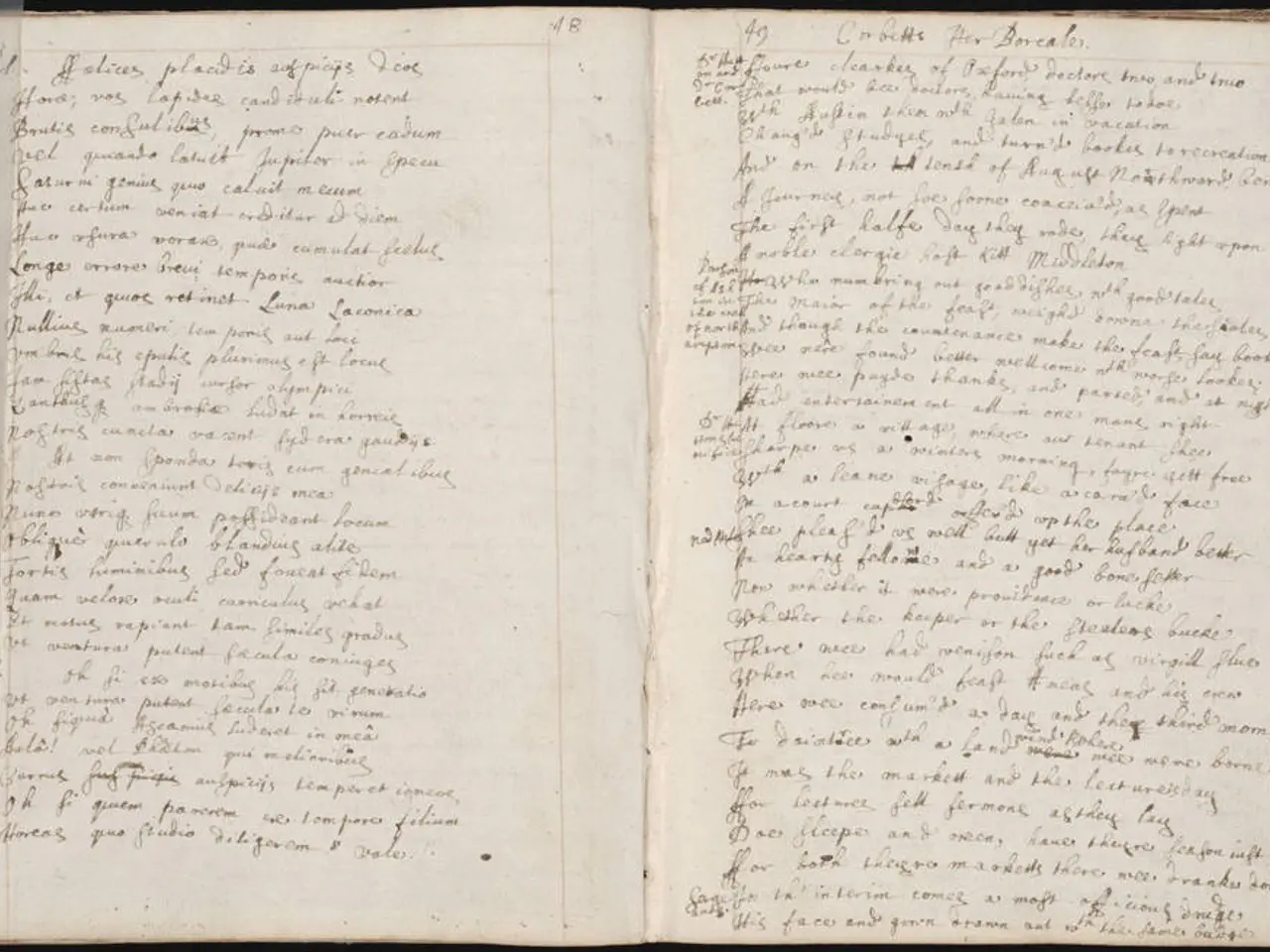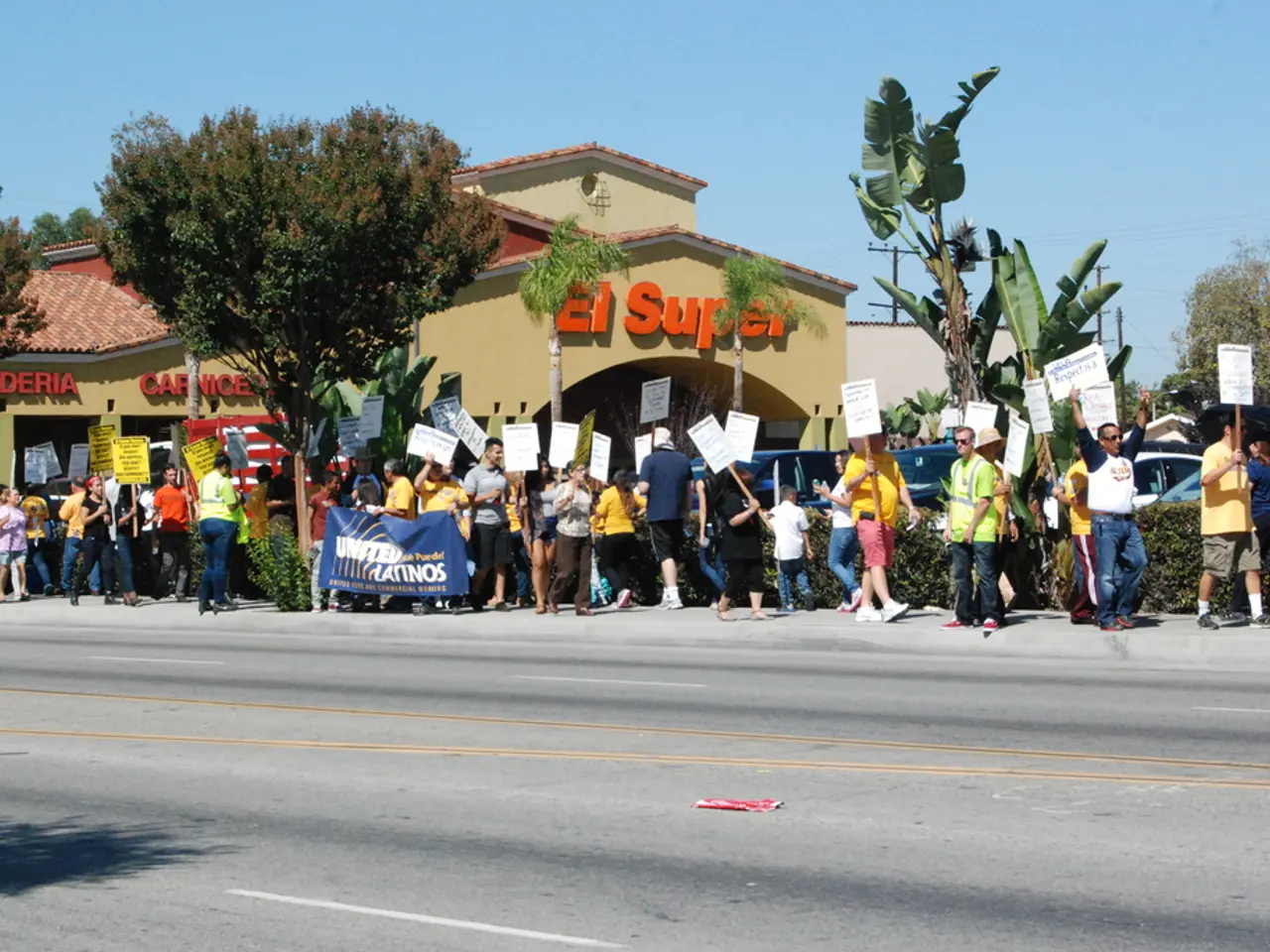Judge advises to halt Trump's nationwide implementation of birthright citizenship decree
In a significant turn of events, a federal court in New Hampshire has blocked President Donald Trump's executive order aimed at restricting birthright citizenship, granting a preliminary injunction and certifying a nationwide class to protect all children born on U.S. soil from the order's effects[1][2]. This decision was made in the case *Barbara v. Donald J. Trump*, a nationwide class-action lawsuit filed by a coalition of civil rights organisations, including the ACLU and the Legal Defense Fund[1][2].
The ruling, made "from the bench," provides a seven-day delay to allow the government to seek a stay from the First Circuit Court of Appeals. However, the injunction will take effect before July 27, 2025—the date when partial implementation of the order might otherwise have begun[1][2].
This development comes in the wake of a June 27, 2025, Supreme Court decision (*Trump v. CASA*) that sided with the Trump administration on the issue of nationwide injunctions[3]. By a 6–3 vote, the Supreme Court rejected the use of universal injunctions that block government policies across the entire country, but it did not rule on the constitutionality of the birthright citizenship order itself[3]. Instead, the Court left open the possibility for further litigation in lower courts, including class-action suits on behalf of those not previously involved in the legal challenges[3].
The legality of the birthright citizenship order, rooted in the 14th Amendment, has been a contentious issue. The order seeks to deny citizenship to infants born to parents living in the U.S. illegally or temporarily[5]. The legal challenge argues that the order violates this constitutional guarantee, as well as congressional intent and longstanding Supreme Court precedent[4].
As the case continues, it serves as a significant test of executive power, the scope of judicial injunctions, and the interpretation of the 14th Amendment[1][3][4]. The injunction is currently set to take effect after a seven-day window, pending any action by the First Circuit Court of Appeals[1][2]. The ultimate constitutionality of the order remains unresolved, with further appeals likely, and the Supreme Court has not yet ruled on the merits of the birthright citizenship issue itself[1][3].
**Key Legal Developments**
| Date | Court/Action | Outcome | |-------------|----------------------------|-------------------------------------------------------------------------| | Jun 27, 2025| Supreme Court (*Trump v. CASA*) | Rejects universal injunctions, allows narrower litigation to proceed[3] | | Jun 27, 2025| Nationwide class-action suit filed | *Barbara v. Donald J. Trump* seeks to block the order[1][4] | | Jul 10, 2025| Federal District Court (NH) | Blocks order, certifies nationwide class, issues preliminary injunction[1][2] |
This ongoing legal battle promises to shape immigration policy and constitutional law for years to come.
[1] "Federal judge blocks Trump's birthright citizenship order," Associated Press, July 10, 2025. [2] "New Hampshire judge blocks Trump's birthright citizenship order," Reuters, July 10, 2025. [3] "Supreme Court rejects Trump's bid to halt nationwide injunctions," CNN, June 27, 2025. [4] "Trump's Birthright Citizenship Order Challenged in Court," The New York Times, June 27, 2025. [5] "Trump's Birthright Citizenship Order: What We Know," NPR, July 10, 2025.
- The Seattle-based federal court's decision to block President Trump's birthright citizenship order is generating widespread discussion in politics and general news, raising questions about the government's policy-and-legislation on immigration.
- The development comes after a Supreme Court decision in June 2025, which allowed narrower litigation to proceed but did not rule on the constitutionality of the birthright citizenship order itself, thus leaving open the possibility for further litigation in lower courts, including class-action suits.
- Businesses are closely monitoring the ongoing legal battle, as its outcome may have significant implications for the economy, particularly in sectors heavily reliant on immigrant workforce.
- The case, currently pending with the First Circuit Court of Appeals, serves as a crucial test of executive power, the scope of judicial injunctions, and the interpretation of the 14th Amendment's guarantee of birthright citizenship, with the ultimate constitutionality of the order remaining unresolved.






